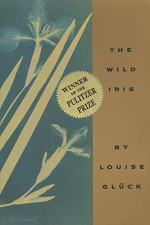
|
| Name: _________________________ | Period: ___________________ |
This test consists of 15 multiple choice questions and 5 short answer questions.
Multiple Choice Questions
1. What does God see as an "Image of departure" (16) in "The Garden"?
(a) The woman's hand leaving the man's face.
(b) The woman leaving the garden.
(c) The man leaving the garden.
(d) The woman and the man turning from each other.
2. What does God say people truly want in "Spring Snow"?
(a) Immortality.
(b) An obvious sign.
(c) God to come to them in human form.
(d) Not belief, but capitulation to authority.
3. What was the couple given which compels the speaker in "April" to say he expected better of them?
(a) The earth.
(b) Bodies.
(c) Minds.
(d) Souls.
4. The speaker in "Matins" (#4) said that s/he asked God to be what?
(a) Forgiving.
(b) Punishing.
(c) Human.
(d) Loving.
5. To whom is the speaker addressing in "Matins" (#3)?
(a) Sun.
(b) Poet.
(c) God.
(d) Flower.
6. Who is the speaker in "The Garden"?
(a) A young couple.
(b) A row of peas.
(c) The poet.
(d) God.
7. What does the woman in "The Garden" do as a sign of truce when the couple disagree about whether to stop or continue?
(a) She touches the man's cheek.
(b) She shakes the man's hand.
(c) She quietly continues.
(d) She nods her head.
8. Why does the witchgrass feel humans even bothered to give it a name in "Witchgrass"?
(a) To have one more slur.
(b) To be able to talk about it.
(c) To create something new.
(d) To write poems about it.
9. Who does the speaker in "Matins" (#4) address?
(a) The poet.
(b) The birch tree.
(c) The sky.
(d) God.
10. What has the young couple in "The Garden" not yet encountered according to the speaker?
(a) Proof of God's existence.
(b) Doubt of God's existence.
(c) Life's great difficulties.
(d) A successful vegetable garden.
11. What does God say He let people do because it is what they wanted in "End of Winter"?
(a) He let them garden.
(b) He gave them free will.
(c) He let them speak.
(d) He let them be born.
12. How is the moonlight described in "Love in Moonlight"?
(a) Being faroff and mysterious.
(b) Being the only light in the darkness.
(c) Having shape without detail.
(d) Being shapeless.
13. What does God say "glitters like the moon" (9) in "Spring Snow"?
(a) The garden.
(b) The snowfall.
(c) The earth.
(d) Fireflies.
14. What does God say he "cannot go on restricting [himself] to" (8) in "Clear Morning"?
(a) His anger.
(b) Images.
(c) Signs.
(d) Time.
15. What is referred to as "a living thing" at the end of "Love in Moonlight"?
(a) A soul.
(b) The earth.
(c) Love.
(d) The moon.
Short Answer Questions
1. What sound does the speaker in "Wild Iris" hear "darting in low shrubs" (1)?
2. What does God say has never gotten in the way of human pleasure in "End of Winter"?
3. Who is the speaker in the poem "Wild Iris"?
4. The poet in "Matins" (#1) disagrees with Noah, saying that she feels attached to what?
5. What does the speaker in "Matins" (#4) say s/he may be better for addressing instead of God?
|
This section contains 486 words (approx. 2 pages at 300 words per page) |

|




